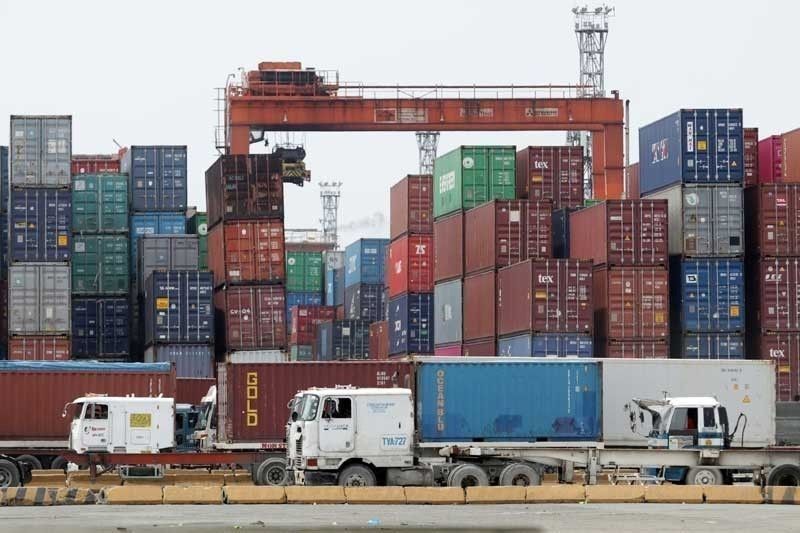UN warns of soaring prices in 2022 due to freight rate spike

GENEVA, Switzerland — The United Nations warned Thursday that a surge in container freight rates could mean higher prices for consumers next year unless pandemic-fuelled problems are untangled.
The UN's trade and development agency (UNCTAD) said global import price levels could increase by 11 percent and consumer price levels by 1.5 percent between now and 2023.
"Global consumer prices will rise significantly in the year ahead until shipping supply chain disruptions are unblocked and port constraints and terminal inefficiencies are tackled," UNCTAD said in its Review of Maritime Transport 2021 report.
Global supply chains faced unprecedented demand from the second half of 2020 onwards as consumers spent on goods rather than services during coronavirus lockdowns.
But the upswing in demand hit several practical constraints, including container ship carrying capacity, container shortages, labour shortages, congestion at ports and Covid-19 restrictions.
The mismatch led to record container freight rates "on practically all container trade routes", according to the report.
"The current surge in freight rates will have a profound impact on trade and undermine socioeconomic recovery, especially in developing countries, until maritime shipping operations return to normal," said Rebeca Grynspan, UNCTAD's secretary general.
"Returning to normal would entail investing in new solutions, including infrastructure, freight technology and digitalisation and trade facilitation measures," she said.
UNCTAD said the pandemic had magnified pre-existing industry challenges, particularly labour shortages and infrastructure gaps.
It also exposed vulnerabilities, such as when China's Yantian Port shut in May due to a coronavirus outbreak, causing significant delays, or when the giant container ship Ever Given blocked the Suez Canal in March, snarling global trade.
Maritime trade rebound
Still, the pandemic's impact on maritime trade volumes last year was less severe than initially expected, UNCTAD said.
Maritime trade contracted by 3.8 percent to 10.65 billion tons in 2020, and is projected to increase by 4.3 percent in 2021.
UNCTAD said the medium-term outlook remained positive but was subject to "mounting risks and uncertainties".
The agency predicted that annual growth will slow to 2.4 percent between 2022 and 2026, compared to 2.9 percent over the past two decades.
"A lasting recovery... largely hinges on being able to mitigate the headwinds and on a worldwide vaccine roll-out," said Grynspan.
"The impacts of the Covid-19 crisis will hit small island developing states (SIDS) and least developed countries (LDCs) the hardest."
The rise in consumer prices is expected to be 7.5 percent in SIDS and 2.2 percent in LDCs.
Stranded seafarers
Contending with lockdowns, border closures and a lack of international flights, hundreds of thousands of seafarers have been stranded at sea, unable to be repatriated or replaced, UNCTAD said.
The UN agency urged governments and industry to work together to end the crew change crisis in the sector, which employs more than 1.9 million people worldwide.
UNCTAD also said the vaccination rate of seafarers was around 41 percent and called for them to be jabbed as a priority.
"This is not acceptable if we want to see the supply chains moving again," said Shamika Sirimanne, UNCTAD's director of technology and logistics.
Shape of the future
While bottlenecks have hindered the economic recovery, the pandemic could trigger far-reaching transformations in maritime transport, UNCTAD predicted.
The crisis has activated digitalisation and automation, which should, in turn, deliver efficiency and cost savings.
Meanwhile, e-commerce -- accelerated by the pandemic -- has changed consumer shopping habits and spending patterns, according to the report.
"This could generate new business opportunities for shipping and ports," said UNCTAD.
- Latest
- Trending


























